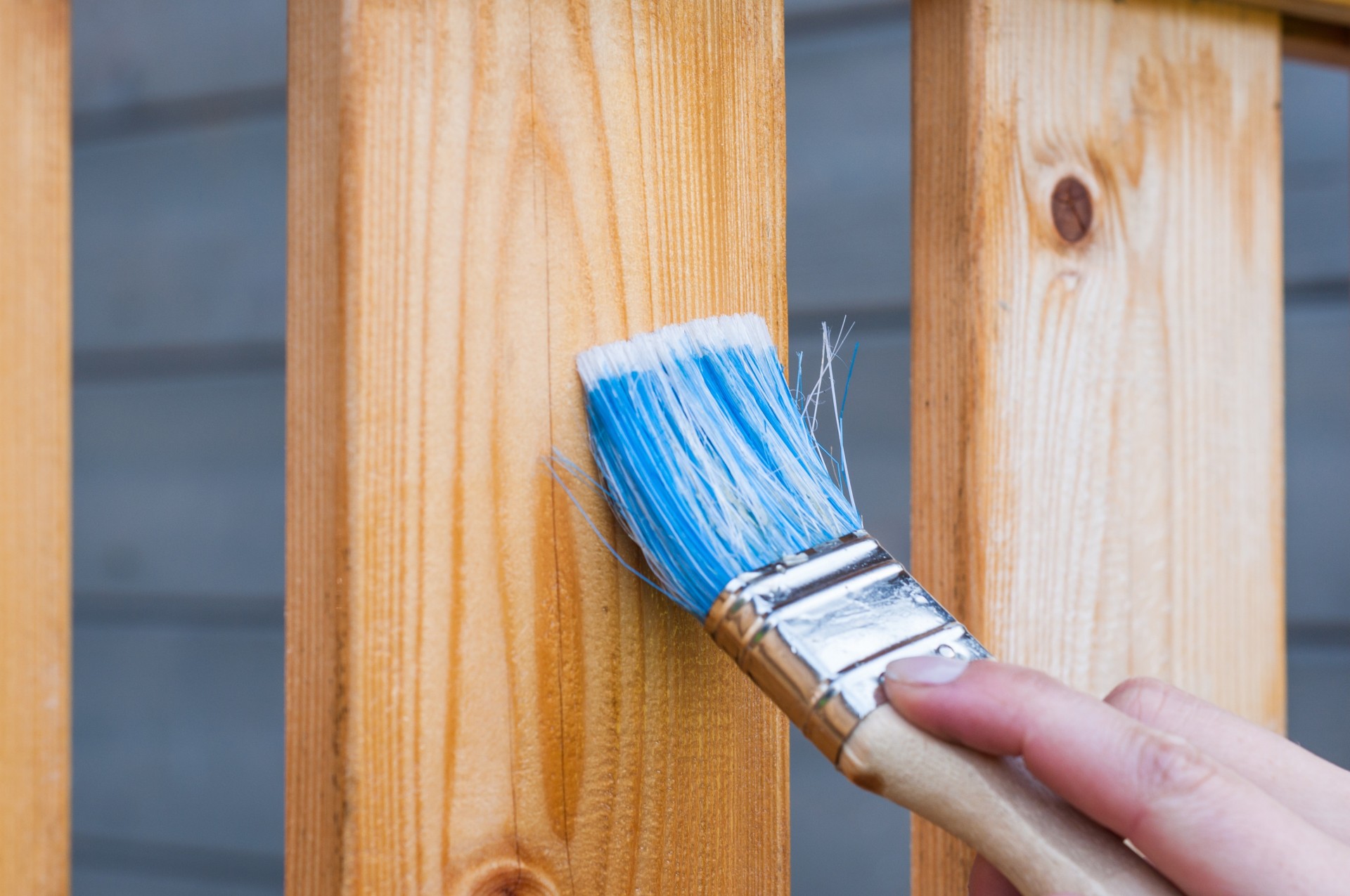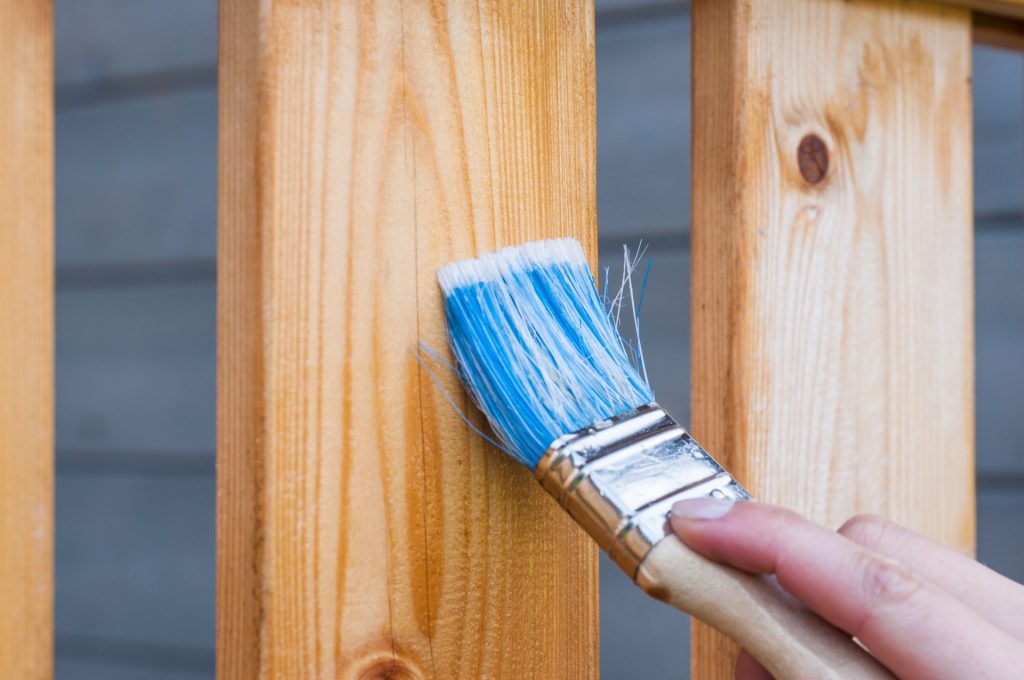10 Mistakes 1st time home buyers make and how to avoid them
 Learning to do something new can be scary. But when the something new involves hundreds of thousands of your hard-earned money, it can be absolutely terrifying. Your objective is to end up with a home you love at a price you can afford; but sadly, many people do things that stop them from achieving the dream. While every home buyer’s experience will be uniquely their own, there are a few common mistakes that every first-time home buyer does. But don’t worry, most of them are entirely avoidable.
Learning to do something new can be scary. But when the something new involves hundreds of thousands of your hard-earned money, it can be absolutely terrifying. Your objective is to end up with a home you love at a price you can afford; but sadly, many people do things that stop them from achieving the dream. While every home buyer’s experience will be uniquely their own, there are a few common mistakes that every first-time home buyer does. But don’t worry, most of them are entirely avoidable.
Load yourself with these tips to get the most out of your purchase and avoid making 10 of the costly mistakes that could put a hold on that sold sign.
1. Skipping the Pre-approval Process
You’ve finally decided it’s time to buy your first home and you are super excited! You can’t wait to begin searching for houses, hunting for that perfect kitchen.
When you first start the home buying process, it can be tempting to jump right into the home search. But before you jump online or walk into an open house, it can be helpful to have an idea of what you can afford to spend on a home. That’s why it’s crucial to be pre-approved by a reputable mortgage lender.
Getting pre-approved for a mortgage serves two important purposes:
- First, it gives you a practical understanding of how much you can spend on the house.
- Second, it shows sellers that you’re serious and gives you slightly more rank if you’re competing for homes with all-cash buyers.
At its core, a pre-approval is a formal analysis of your financial situation based on your income, credit and other financial factors. In the end, you’ll receive a dollar amount that defines how much you can afford to spend on a home. This formal document is called a “pre-approval letter”.
Getting a pre-approval letter is not the end. You actually need to go through the financial onslaught called “underwriting” before you set foot in a listed home. Underwriting means you share dozens of documents with your lender so the underwriting department can decide if you qualify for a loan based on a whole gathering of financials.
The underwriting process is painful, period. However, it reveals any potential challenges you will have. It gives you time to fix any concerns so you don’t lose that dream house once you found it. Better yet, it tells you exactly how much house you can afford. It takes the guesswork (and sometimes wishful thinking) out of the process.
By now, you might understand just how important this information is. It’s better to know for certain how much you can afford to spend on a home, rather than blindly jumping in to the home search.
2. Interviewing only one lender
Lenders offer varying fees, rates, and loan amounts, so don’t necessarily go with the first home loan professional you find. The cheapest isn’t always the best either. You may pay slightly lower fees at one mortgage originator, but if the service and support you’re receiving throughout the process are lacking, you may end up with a poorer, more stressful process than you otherwise would if you went with a more reputable, client-centric lender with slightly higher payments.
It’s best to get loan offers from at least 4 to 5 lenders. Comparing the interest rates and closing costs can help you ensure you get the best rates on your next mortgage. Not only will comparing lenders help you get the best rate, you will also get more advice from loan officers and get a feel for who you prefer to work with and the best mortgage lender for your situation.
Jumping into getting a mortgage without doing all of your research is a recipe for disaster. There are some great conventional loan programs, some like the conventional 97 program with a 3% down payment. However, most conventional loans will require a 5% – 20% down payment. If you’re not putting 20% down you will be required to pay mortgage insurance. FHA loans were created to help more increase homeownership in America by making mortgages easier to achieve.
However, if you have large savings and can afford a 20% down payment, you can avoid PMI. Mortgage insurance can be as high as 1% of the loan amount annually. By putting 20% down you can avoid PMI which leads to big savings.
Ultimately the choice is up to you, but exploring your options is never a bad idea.
3. Buying a home that’s too expensive
Every homebuyer knows the feeling – you’re looking for a home that fits your budget, but that much more expensive property just looks that much more appealing.
However, buying a home that’s way out of your price range could well wreck your finances in the future.
It’s human nature for us to want a little more than we can afford, and there’s always a real estate agent who’ll talk you to the next level.
One of the more common mistakes first time home buyers make is buying a home that’s too expensive for them. How much you can afford depends on your debt to income ratio. The maximum DTI ratio is 41% for most mortgages, but the ideal DTI is 36%. Keep in mind there are other costs associated with a mortgage. You have insurance, property taxes, HOA dues, and landscaping.
As we’ve all learned from the subprime mortgage mess, what the bank says you can afford and what you know you can afford (or are comfortable with paying) are not necessarily the same. If you don’t already have a budget, make a list of all your monthly expenses (excluding rent), including vehicle costs, student loan payments, credit card payments, groceries, health insurance, retirement savings and so on.
Don’t forget major expenses that only occur once a year, like any insurance premiums you pay annually or annual vacations. Subtract this total from your take-home pay and you’ll know how much you can spend on your new home each month. When calculating this figure, use a mortgage calculator to research current interest rates. This will give you an estimate of what your total mortgage payments will be.
Next, tailor your house-hunting to properties in your financial neighborhood. If you end up looking at homes that are outside your price range, you’ll end up lusting after something you can’t manage, which can put you in the dangerous position of trying to stretch beyond your means financially or cause you to feel unsatisfied with what you actually can bear. You may even learn that you can’t afford the type or size of home that you desire and that you need to work on reducing your monthly expenses and/or increasing your income before you even start looking.
Spending more than you can sensibly afford leaves you exposed to potential financial shocks, including rises in interest rates.
4. Maxing out your mortgage limit
Of course, there’s more money involved in the home buying process outside of the down payment and monthly mortgage payments. Another common mistake that first-time home buyers make is forgetting (or not knowing) that there are additional expenses that go into buying a home.
What are you going to do if the hot water heater fails or you need to replace the AC compressor? (Don’t forget to learn the age of these utilities when you do your home inspection) It will cost you more to maintain the older units. Do you want new furniture? A high-tech fridge? Consider these costs. For example, property taxes, home insurance, appliances, furniture, maintenance, and utilities are just a few expenses a new homeowner should be aware of.
Owning a home is much more diversified than renting one. If something breaks, you have to fix it. Various items are always needing to be replaced in a home. Make sure you leave enough room to breathe and to save some each month in case you need it.
5. Not hiring a Realtor
The sellers have an agent protecting them, looking after their interests and advising them, but most home buyer’s go solo. Some first-time buyers believe they don’t need a real estate agent or using the seller’s agent. You always want to have an experienced agent on your side working on your behalf. Realtors aren’t paid by you, the seller’s commission is paid by the seller, it’s built into the price already. You will not save money by not using an agent, in fact, it could cost you thousands of dollars and potentially the home.
However, the wise home buyer understands who’s working for whom. Unless you have engaged an exclusive buyers’ agent, then the agents are working for the sellers. Don’t be mistaken – a selling agent can’t work in the interests of both the buyer and the seller. Agents are held to the ethical rule that they must act in both the seller and the buyer parties’ best interests, but you can see how that might not work in your best interest if you start dealing with a seller’s agent before contacting one of your own. You probably have a good head on your shoulders and may even have a good working knowledge of the home buying process.
What you probably don’t have, however, is perspective. If, how and when you buy a home are all decisions that will have major consequences. That’s why it’s important to have the same protection on your side that the seller has. That’s why it’s critical to engage a professional buyers’ agent to represent your interests.
6. Being Too Picky
Of course, you should buy a home that works with your budget and your needs. However, make sure you don’t get caught up in a few unnecessary wants that keep you from buying a home altogether.
That great house you saw on HGTV is probably not in your price range. Go ahead and put everything you can think of on your new home wish list, but don’t be so rigid that you end up continuing to rent for significantly longer than you really want to. First-time homebuyers often have to compromise on something because their funds are restricted. You may have to live on a busy street, accept outdated décor, make some repairs to the home, or sacrifice that extra bedroom.
Of course, you can always choose to continue renting until you can afford everything on your list – you’ll just have to decide how important it is for you to become a homeowner now rather than in a couple of years.
While you may want the home of your dreams, remember that as a first-time home buyer, you’re typically looking for a starter home, usually something smaller and more affordable than the larger home you might buy down the road. So, while you may want the new hardwood floors, granite countertops, and fireplace, remember that this first home is filling a need, rather than a want.
7. Neglecting to Inspect
First-time home buyers are frequently surprised by high repair and renovation costs.
Before you move into a new home, you should hire a professional home inspector to go through the house and check for any issues before moving in.
Skipping the home inspection, or hiring an unqualified family member or friend to perform a home inspection could lead to issues down the road. You need to know what shape the house is in before you buy to avoid getting stuck with a money pit of home repairs you didn’t plan for.
You don’t want to get stuck with the headache of performing a lot of unexpected repairs. Keeping your feelings in check until you have a full picture of the house’s physical condition and the soundness of your potential investment will help you avoid making a serious financial mistake.
This will allow an opportunity to revisit the selling price with the seller and seller’s agent to make sure you’re getting a fair deal based on the condition of the home.
8. Not Doing Proper Research and Preparation
Falling in love with a house is a fundamental part of the home selection process. But do you know how much to actually offer?
First, ask your buyer’s agent (you never want to rely on the seller’s agent because they work for the seller, not you!) to do a comparative market analysis on the house. You want one just like they do for their sellers. You can check Zillow too, but be sure you calculate and account for how much their Zestimate is off.
Second, visit every home for sale that’s similar to your dream house. What is its price? How do the amenities compare? Are there railroad tracks two streets over? Go to Metro and get the crime statistics. Check out the National Sex Offender Registry. Google the street name. Make it your business to be an expert about the neighborhood.
It’s impossible to perfectly predict the future of your chosen neighborhood, but paying attention to the information that is available to you now can help you avoid unpleasant surprises down the road.
Some questions you should ask about your prospective property include:
- What kind of development plans are in the works for your neighborhood in the future?
- Is your street likely to become a major street or a popular rush-hour shortcut?
- Is there talk of a bridge or a highway to be built in your backyard in five years?
- What are the zoning laws in your area?
- If there is a lot of undeveloped lands? What is likely to get built there?
- Have home values in the neighborhood been declining?
If you’re happy with the answers to these questions, then your house’s location can keep its rose-colored glow.
9. Letting your emotions control your decisions
Buying a home can be a long and frustrating process. These days, starter homes go quickly, and it’s common for first-time buyers to experience rejection on the first offers they make. In that kind of environment, it’s easy to fall in love with a house that’s out of your budget, or get caught up in the heat of a bidding war and end up paying more than you expected.
Don’t get too attached to a home you think is perfect and meets all your needs! It may end up being out of your budget or subject to a bidding war in which you end up paying a far higher price than similar homes in the area. Paying above a home’s appraisal value is never a good thing, so avoid becoming emotionally invested in a home that forces you to do so.
Being excited is great, but don’t forget that there are many other homes out there even if you don’t get this one. It’s better to keep looking than overpay, as that could put you in a situation where you can’t afford your mortgage or you quickly end up underwater if the market starts slipping.
If you think a house is ideal, don’t let the seller’s agents know. Agents are good at reading emotions and negotiating the last cent out of prospective purchasers.
A wise home buyer knows there are lots of houses – and there’s one out there that’s the right house at the right price. If you can’t afford it, move on and keep looking.
10. Allowing your credit score to change before the sale is final
You want to leave your credit alone as much as possible. While you’re home shopping, be sure to pay all your bills on time and stay away from new credit accounts, even if that means you have to wait to pick out your furniture. If possible, try not to switch jobs until after you close, especially if you’re moving into a new industry.
Changes to your credit score may cause your lender to adjust your loan rate or amount, meaning you have to go through the pre-approval process again and you may not get as good for a deal as you did the first time around.
Also, keep in mind that pre-approvals only last for about 60-90 days. If you don’t make a decision within that time frame or for some reason stop your home search, you will likely have to reapply at a future date.
The lender’s mortgage decision is based on your credit score and your debt-to-income ratio (in case you forgot, that’s the percentage of your income that goes toward monthly debt payments). Applying for credit can reduce your credit score a few points. Getting a new loan, or adding to your monthly debt payments, will increase your debt-to-income ratio. Neither of those is good from the mortgage lender’s perspective.
Within about a week of the closing, the lender will check your credit one last time. If your credit score has fallen, or if your debt-to-income ratio has gone up, the lender might change the interest rate or fees on the mortgage. It could cause a delay in your closing, or even result in a canceled mortgage.
Wait until after closing to open new credit accounts or to charge furniture, appliances or tools to your credit cards. It’s OK to have all those things picked out ahead of time; just don’t buy them on credit until after you have the keys in hand.
Your credit score is directly tied to your interest rate and how good of a deal you get on your mortgage. First-time buyers sometimes fail to make sure their credit score is as high as possible. If you can improve your credit score by as little as 20 points, it can have a big impact on your interest rate, potentially saving you thousands of dollars in interest.
Buying a first home can seem stressful and overwhelming, and it isn’t without its portion of possible pitfalls. If you’re well aware of those issues ahead of time, you can shield yourself from costly mistakes and shop with confidence. For many people, a home is the largest purchase they will ever make, but it need not be the most complicated.


